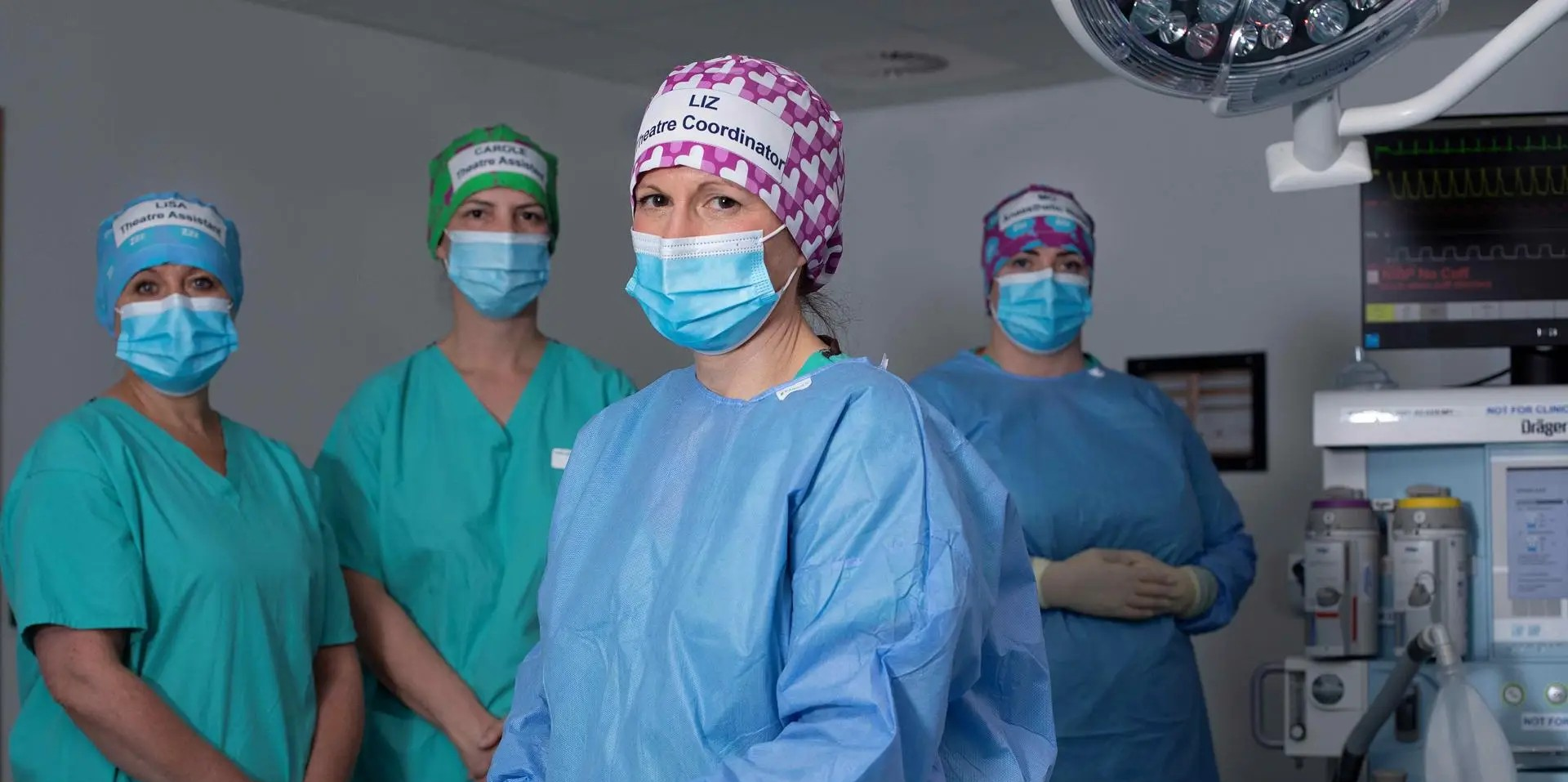NHS Scotland Net Zero: Plant-based Sustainable Reusable Theatre Caps Introduced

The Golden Jubilee University National Hospital in Scotland have become the first to trial reusable plant-based theatre caps following a collaborative design project between themselves, The University of Strathclyde and Heriot-Watt University – as part of the net zero mission for NHS Scotland.
The theatre cap research project is part of the bigger picture in Scotland’s sustainable healthcare plans, and specifically a part of the Design HOPES eco health project.
Design HOPES was recently awarded more than £4.6M by the Arts and Humanities Research Council (AHRC) as one of four Green Transition Ecosystem (GTE) Hubs in the UK. Their overall aim is to address distinct challenges related to the climate crisis including, such as realising net zero goals.
Led by Professor Paul Rodgers (University of Strathclyde) and Mel Woods (University of Dundee), the AHRC funded project has created these sustainable caps in a trial batch to address hospital medical waste and help tackle environmental challenges in healthcare.
Design HOPES is driven to contribute to NHS’ Net Zero mission
In the Heriot Watt University press release, Dr Euan Winton, Assistant Professor of Design at Heriot-Watt, said:
The new sustainable theatre caps represent a crucial step in addressing this significant wastage and demonstrating the power of design in tackling environmental challenges in healthcare.
800,000 single-use caps are used per year and can take up to 300 years to decompose
According to Heriot Watt, around 800,000 single-use caps are used and discarded per year in Scottish hospitals, which may take up to 300 years to decompose.
The newly designed hospital caps are biodegradable, and made from plant-based cellulosic fibre. They are colour-coded for staff in different roles and at different levels of seniority, to aid with identifiability in busy clinical environments – a benefit for staff and patients alike.
In the same article, When commenting on the design of the caps, Carole Anderson, Director of Transformation Strategy, Planning and Performance at NHS Golden Jubilee, said:
“These new theatre caps align with our commitment to reducing our environmental impact and also enhance our ability to provide safe and high-quality patient care.
“By improving staff identification and potentially easing patient anxiety, these caps offer multiple benefits beyond their eco-friendly design.”
Design HOPES is part of the Future Observatory Programme
The Design HOPES project is part of the Future Observatory programme – fostering collaboration, research, and innovation within the design field.
In partnership with Future Observatory at the Design Museum, and Funded by AHRC, the £25m multimodal investment aims to bring design researchers, universities, and businesses together to catalyse the transition to net zero and a green economy.
A new work-in-progress display has been running from Design HOPES from the 6 December 2024, up to the 17 February 2025 at the V&A in Dundee. The display poses the question: ‘How can design help us live healthier lives, for people and planet?’ and gives an insight into the behind the scenes of the initiative.
NHS Scotland Net Zero Plans
This trial for The Golden Jubilee University National Hospital is a step in the right direction in the bigger picture of NHS Scotland’s mission to become a net zero health service by 2024, at the latest.
Quoted by Heriot Watt University, Professor Paul Rodgers from the University of Strathclyde’s Department of Design, Manufacturing and Engineering Management, said:
Working closely with our NHS Scotland partners, we will continue to support them on their green transition journey, developing collaboratively design-led solutions that will create positive change.
This project showcases the power of collaboration between universities, healthcare providers, and design researchers. By bringing together expertise from various fields, we’ve been able to create a solution that is both practical and sustainable. Moreover, this project has potential for creating new green jobs across Scotland that will have socio-economic as well as environmental impact.
From the NHS Scotland climate emergency and sustainability strategy: 2022-2026:
“The risks that we face from climate change are the greatest threats to health this century. Health care emissions contribute to the climate crisis. But there are tools that we can use to make the NHS more environmentally sustainable and improve patient care. Health services and clinicians can also play a role in advocating for health promoting, environmental action in other areas such as transport and access to nature.
“I am determined that we foster a new culture of stewardship – where we are mindful of the resources we use and deliver green and sustainable healthcare – better value care for the people we care for and for our system. And I think we can all play a part in achieving this.” (Humza Yousaf, Cabinet Secretary for Health and Social Care)
